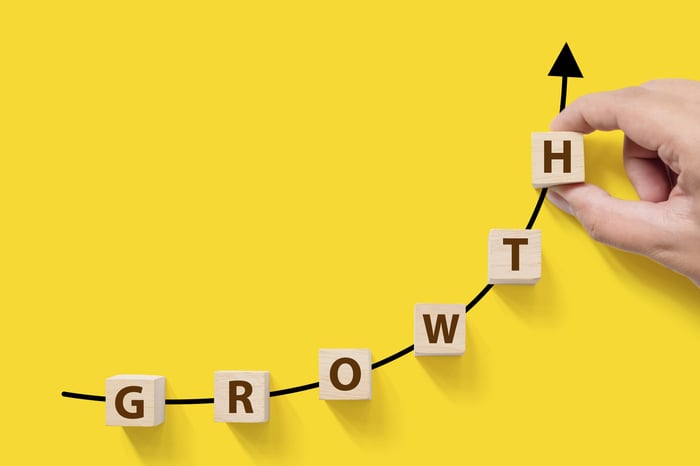Hormel Foods (HRL -0.93%) has been a core part of my portfolio for a long time. I bought the shares when they were yielding around 2.3% or so. The yield today is again roughly 2.3%, which is toward the high end of the company's historical yield range. That high yield encouraged me to buy more stock. But it wasn't the only reason I jumped in again.
Yes, inflation is a problem
One of the big reasons why Hormel's yield is back up to the point where I am interested is that inflation is on the rise. It's a big deal and will likely crimp the company's earnings, as it has to pay more to hire employees, transport products, and acquire ingredients. But inflation isn't new; the food maker has dealt with this before and it still managed to increase its dividend for 55 consecutive years. Indeed, you don't get to Dividend King status without working through hard times.

Image source: Getty Images.
In fact, management addressed this issue during Hormel's third-quarter 2021 earnings conference call. Basically, it increased prices across its entire portfolio. And, just as important, demand remained strong despite the price hikes. So Hormel is dealing with inflation the way food companies always do and is seeing early success. The near-term problem is that price increases always lag inflation, so investors don't see the benefit right away. I'm confident that Hormel has a handle on this issue.
In the meantime, as investors worry, I was able to add to my position in what I consider a great dividend growth stock. Note that since I made my original investment, the dividend has increased multiple times, so I'm still in the black even though the yield is back up to where I bought it before. And that relatively high dividend yield was too tempting to pass up...again.
The next big catalyst
While inflation is the big concern today, investors also need to understand Hormel's business. It has a rock-solid balance sheet, with an investment-grade rating and a modest debt-to-equity ratio of just 0.5 times or so. Here's the thing: That debt-to-equity ratio is actually high for Hormel because it just consummated the acquisition of the Planters brand. That adds another iconic name to the company's roster of industry-leading brands like SPAM, Hormel, Skippy, and Wholly Guacamole.
HRL Dividend Yield data by YCharts
What's most interesting here, however, is that Planters is an incredibly complementary brand for Hormel. It fits with the company's protein focus. It has strong name recognition in the nut space. And it materially broadens Hormel's reach in the convenience sector, an area where it hasn't had as much exposure in the past. That could provide a solid inroad for Hormel's other products to reach into the convenience space, as the historically inventive company reworks products to sell in a different venue.
As for the additional leverage taken on to get this deal done (debt to equity was about 0.2 times before the transaction), Hormel has a history of paying down debt after making acquisitions. There's no reason to think that won't happen this time, too. You could easily argue that the timing of the Planters purchase wasn't so great, given the spike in inflation, but when a good opportunity knocks, sometimes you have to take it. And I believe Planters will end up being a great growth opportunity for Hormel.
Historically high yield with a catalyst
All in, I bought Hormel because its yield has gotten historically attractive again as investors worried about inflation, which I think will be a transitory issue. And, at the same time, it has a growth catalyst in the Planters acquisition that should help support continued robust dividend growth over the long term. For dividend investors looking for more growth-oriented fare, that's a combination that you shouldn't pass up -- I sure didn't.





